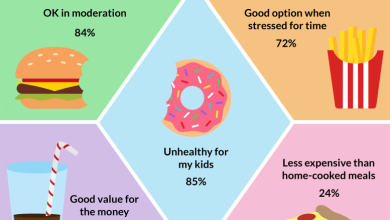
Lead Image: The study involved twenty-one different patients with metabolic syndrome. They were given either a calorie-restricted or protein-restricted diet.
According to new research, protein restriction is effective in combating obesity and diabetes.
According to a study comparing the effects of protein and calorie restriction diets in humans, reducing protein consumption may help control metabolic syndrome and some of its primary symptoms, such as obesity, diabetes, and high blood pressure (hypertension). The study’s findings were recently published in the journal Nutrients.
The term “metabolic syndrome” refers to a group of diseases, including hypertension, high blood sugar, excess body fat around the waist, and abnormal cholesterol levels, that increase the risk of diabetes, cardiovascular disease, and stroke.
“The study showed that cutting protein intake to 0.8 g per kg of body weight was sufficient to achieve almost the same clinical results as restricting calories, but without the need to reduce calorie intake. The results suggest that protein restriction may be one of the key factors leading to the known benefits of dietary restriction. Protein restriction dieting may therefore be a more attractive nutritional strategy and easier to follow for people with metabolic syndrome,” said Rafael Ferraz-Bannitz, first author of the article and currently a postdoctoral researcher at the Joslin Diabetes Center in Harvard Medical School in the United States.
Controlled diet
The research involved 21 individuals with metabolic syndrome who were monitored for 27 days. Throughout the period, they were inpatients at FMRP-USP’s teaching hospital (Hospital das Clnicas in Ribeiro Preto).
The daily calorie intake of each participant was determined as a function of their baseline metabolism (energy expenditure at rest). A conventional Western diet of 50% carbohydrates, 20% protein, and 30% fat was served to one group, but it contained 25% fewer calories.
Protein consumption was lowered to 10% in the second group. Each volunteer’s calorie intake was matched to their baseline energy expenditure. 4 grams of salt were consumed daily by both groups.
The results showed that both the calorie and protein restriction groups lost weight owing to a decrease in body fat and that the symptoms of metabolic syndrome improved. Decreased body fat is known to be associated with reduced blood sugar and more normal levels of lipids and blood pressure.
“After 27 days of monitoring, both groups had similar results in terms of lower blood sugar, weight loss, controlled blood pressure, and lower levels of triglycerides and cholesterol. Both diets improved insulin sensitivity after treatment. Body fat decreased, as did waist and hip circumference, but without loss of muscle mass,” said Maria Cristina Foss de Freitas, the last author of the article and a professor at FMRP-USP.
The findings confirmed those of previous studies involving experiments on mice. “Here, however, we succeeded in conducting a fully controlled randomized clinical trial lasting 27 days, with a personalized menu designed to meet each patient’s needs,” Foss de Freitas said.
Manipulation of dietary macronutrients – protein, carbohydrate, and fat – is sufficient to obtain the beneficial effects of dietary restriction. “We demonstrated that protein restriction reduces body fat while maintaining muscle mass. That’s important since the weight loss resulting from restrictive diets is often associated with loss of muscle mass,” Ferraz-Bannitz said.
The study did not investigate the molecular mechanisms that could explain the beneficial effects of protein restriction diets, but the researchers believe low protein intake triggered a change in the metabolism or enhanced the organism’s energy management by leading it to burn fat in order to produce energy for cells. “We only have hypotheses so far. One is that molecular pathways are activated to interpret the reduction in essential amino acids as being a signal to reduce food intake while leading to the production of hormones that typically increase when we’re fasting,” Mori said. “Studies in animal models have shown the involvement of such pathways in the effects of both protein and calorie restriction, both of which lead to fat loss.”
Despite the promising results of their studies, the researchers point out that the diets involved were personalized. Mori also stressed that they focused on a specific population of patients with metabolic syndrome (obesity, diabetes, hypertension, and abnormal levels of cholesterol).
“Nevertheless, it’s tempting to extrapolate the results. We know research has shown vegan diets to be positive for cases of metabolic syndrome. It’s also been found that the excessive protein intake common in the standard Western diet can be a problem. Every case should be analyzed on its own merits. We shouldn’t forget protein deficiency can lead to severe health problems, as has been well-described in pregnant women, for example,” he added.
Reference: “Dietary Protein Restriction Improves Metabolic Dysfunction in Patients with Metabolic Syndrome in a Randomized, Controlled Trial” by Rafael Ferraz-Bannitz, Rebeca A. Beraldo, A. Augusto Peluso, Morten Dall, Parizad Babaei, Rayana Cardoso Foglietti, Larissa Marfori Martins, Patricia Moreira Gomes, Julio Sergio Marchini, Vivian Marques Miguel Suen, Luiz C. Conti de Freitas, Luiz Carlos Navegantes, Marco Antônio M. Pretti, Mariana Boroni, Jonas T. Treebak, Marcelo A. Mori, Milton Cesar Foss and Maria Cristina Foss-Freitas, 28 June 2022, Nutrients.
DOI: 10.3390/nu14132670
The study was funded by the São Paulo Research Foundation. The study also benefited from a FAPESP Thematic Project on strategies for mimicking the effects of dietary restriction, led by Marcelo Mori, a professor at the State University of Campinas (UNICAMP), also in Brazil.
A multidisciplinary team of scientists conducted the study, including researchers affiliated with the University of Copenhagen in Denmark, the University of São Paulo, and the National Cancer Institute (INCA) in Brazil, as well as the Obesity and Comorbidities Research Center (OCRC), a Research, Innovation, and Dissemination Center (RIDC) funded by FAPESP and hosted by UNICAMP.





